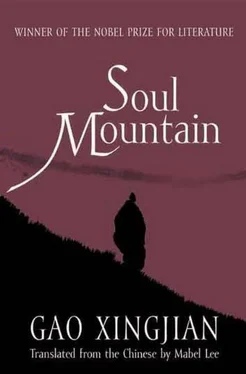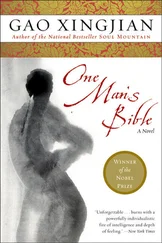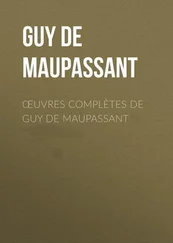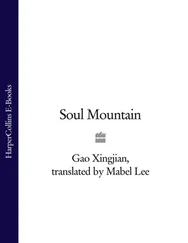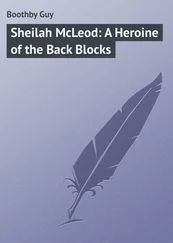I walk past small streets with houses all huddled closely together, the eaves of the roofs all hang low and stretch almost to the middle of the road. I have to hurry home, my maternal grandmother is waiting for me. When it’s time for dinner she yells out to me, she always sounds like she’s arguing with someone. She often had rows with my mother, she had a quick temper and it got worse as she got older. She couldn’t get on with her own daughter, and went off in a huff to look for some of my maternal relatives. Afterwards they said she died in an old people’s home. I must find out what happened to her to do the right thing by my dead mother. My thinking all the time of people who are dead on this occasion is probably because usually I don’t ever think about them, yet in fact they are closest to me. In this cave in the mountains, by the fire, the dancing sparks induce reminiscences. I rub my eyes which are stinging from the smoke and won’t open.
I get up and go outside, the mist is a little lighter and it is possible to see ten paces away. Fine rain is drifting in the air. I discover some ends of burnt incense sticks poked into the cracks of the cliff, there is also a branch tied with pieces of red cloth poked into a crack. I think to myself this must be the place where women pray for sons which the mountain people call Lingyan.
The huge heaven-propping pillars on the peak completely vanish in the mist. I walk along the mountain ridge and suddenly in the mist a dead city appears.
Can’t you talk about anything else?
You say these ruins overgrown with weeds are assailed by mountain winds, moss and lichen cover broken slabs of rock and there’s a gecko running on one of them.
It is said that in those times, the sound of bells at dawn, the boom of drums at dusk and the smoke of incense filled the air and there were a thousand monk dormitories and nine hundred and ninety-nine monks sworn to solitary existence. The monastery was ruled by a venerable monk and on the day he died there was a grand Buddhist gathering.
It is said that incense burned in each of the censers of the monastery, filling a circumference of several hundred li with its aroma, so that devotees smelling it in the wind fought to witness the old monk transform as he sat there and rose to heaven. The tracks and paths through this wooded Buddhist territory were crammed with devout men and women hastening to worship.
It is said that the chanting of sutras filled the air and drifted beyond the mountain pass. There were no vacant cushions in the halls and latecomers knelt on the floor to pray. Those who came even later waited outside the halls. An endless stream kept coming up behind the crowds who couldn’t get inside the monastery gates. It was a gathering such as had never been seen before.
It is said that the devout all wanted to receive the grace of the old monk and the multitude of disciples all wanted to receive his rendition of the dharma truth. Before the Venerable Master died he would give an exposition of the dharma from the Sutra Hall which was on the floor below the Sutra Library, to the left of the Hall of Magnificent Treasures.
It is said that in the courtyard in front of the Sutra Hall two cassia trees were in bloom, one a golden red and the other a moonlight white, each exuding a subtle fragrance. Rush cushions were spread from the Sutra Hall into the courtyard and monks sitting with legs folded, hearts immaculate, in the warm rays of the autumn sun calmly waited for the old monk’s last exposition of the dharma.
It is said that he had bathed and fasted, neither eating nor drinking, for seven days and seven nights. Eyes closed, he sat with legs folded on the lotus-shaped altar of carved black sandalwood, a voluminous cassock covered in patches draped over his shoulders. Sandalwood chips burned in the bronze upright censer before the altar, spreading their pure fragrance throughout the Sutra Hall. His two senior disciples stood on either side of him and a score of monks he had personally tonsured waited with absolute reverence below the altar. His left hand held a string of Buddha beads and his right hand a Buddha bell. As he gently struck the bell with the steel pin in his hand a magnificent note rippled among the Buddha pennants hanging above the hall.
It is said that the multitude of monks thereupon heard the sound of his mellifluous voice: Buddha tells those awaiting enlightenment that Buddha cannot be perceived by manifestations of the physical body. Buddha says all existing phenomena are illusions, manifestations of the physical body. If manifestations are erroneous manifestations then they are also not erroneous manifestations. All that I teach is what the Buddha ancestor has said and what Buddha has said cannot be grasped and cannot not be grasped, and also cannot be verbally transmitted. This which cannot be verbally transmitted and which cannot be grasped is what I transmit to all of you, and is the Great Dharma transmitted by Buddha. Are there any questions?
It is said that among this multitude of Buddhist disciples not one understood and not one dared ask. Most troubled were the two disciples on either side who had attended him for seven days and seven nights, not daring to relax even a little, just waiting for him to give instructions for the funeral and to pass on his cassock and alms bowl. However, he said nothing about these, and in the censer the last stick of incense for calculating the time had burnt down to the wood. Finally it was the more senior disciple who plucked up the courage, took a step forward, kneeled with his palms pressed together, then prostrated himself and said: This disciple has a question but doesn’t know whether or not he should ask.
It is said that the old monk opened his eyes a little and asked what it was that he wanted to ask. This senior disciple raised his head, looked around and asked whether the cassock and bowl would be handed over before he ended his life. Everyone understood what was implied — someone had to receive the cassock and bowl to govern this huge monastery with its multitude of monks and wealth of incense. How could there not be a successor in a whole generation of monks?
It is said that the old monk nodded and took out the bowl from his cassock. As soon as he uttered the words “Take the bowl”, the slender stick of incense burnt right down. The smoke slowly rose, trembled, formed an incomplete circle, then vanished. In the Hall of Magnificent Treasures, the 1200-catty iron bell made under supervision of the monks during the Zhengyuan reign of the Tang Dynasty sounded. Immediately drums began to boom and the multitude of monks in the Sutra Hall hastened to beat their wooden clappers and bronze chimes. When the monks saw that the old monk had already handed over his cassock and bowl the sutra chant Namo Amitofu rose into the air from every mouth.
It is said that the two senior disciples were dull-witted and neither had heard the old monk say “and go begging” after the words “Take the bowl”. When they saw the old monk’s lips tremble neither was interested in obtaining the true teaching but grabbed the alms bowl and wouldn’t let go. Consequently, it quietly disintegrated. The two were alarmed and realized that the old monk had willed it and didn’t dare to say anything. Only the venerable old monk knew the monastery would be destroyed that day. He couldn’t bear to watch, closed his eyes and stopped breathing as he sat there sedately on the lotus seat, one hand resting in the other, staring at the gate of life on his abdomen, and silently willing the end of his life.
It is said that inside and outside the Sutra Hall bells and drums loudly sounded and the chanting of the sutras by the monks in the hall reached the courtyard, whereupon the masses of monks in the courtyard began chanting which spread out all around to the three great halls and to the two side halls and then drifted out to the front of the monastery to the square which was crammed with sedan chairs, donkeys, horses and worshippers. The devout men and women who couldn’t get through the mountain pass refused to be left out and, chanting Namo Amitofu as loudly as they could, made a mighty charge through the pass!
Читать дальше
Конец ознакомительного отрывка
Купить книгу
